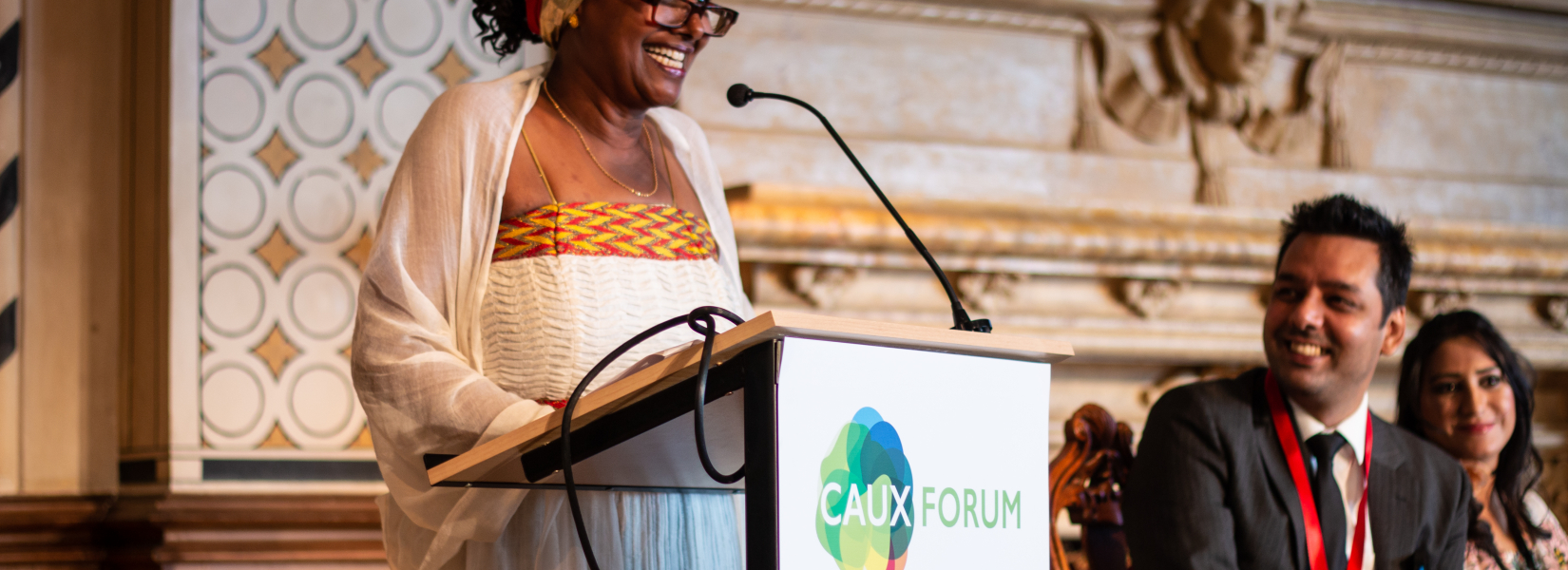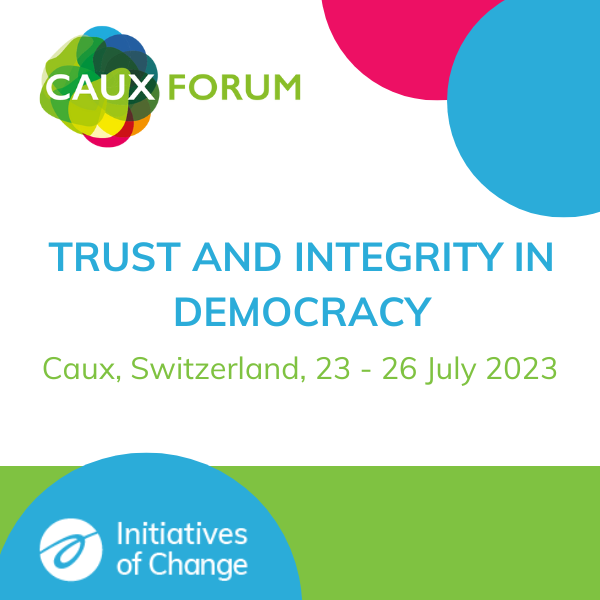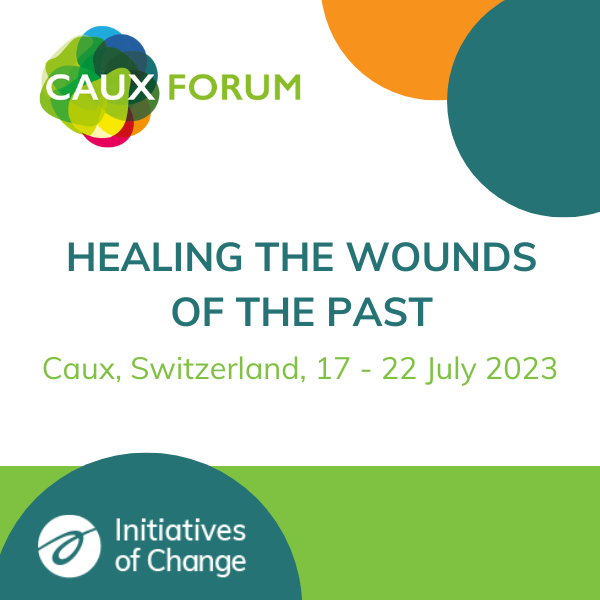Just Governance is not just for Governments-Saturday 4 July 2015
JUST GOVERNANCE IS NOT JUST FOR GOVERNMENTS
04/07/2015Saturday 4 July 2015
The role of civil society in the struggle for justice, integrity and democracy was today’s opening plenary topic, complementing the larger conference theme of 'building trust for ethical and inclusive governance.' A diverse assembly of over 200 delegates from all continents came to debate and advance the need for Just Governance in countries that have been exposed to oppression, corruption, conflict, or are suffering the aftermath of civil war.
Bedan Mbugua, founder of Kenya’s Fountain Media Group, was imprisoned twice in Kenya for his exposure of corruption. In his opinion, the role of media should be to 'celebrate the good and provide solutions', and to raise and address issues of corruption. 'We realise that women are a power base to combat corruption', he said. Today BBC World News (2 July 2015) carried a report on the Kenyan government’s nationwide crackdown on the illegal alcohol that kills hundreds of Kenyans every year. This is a response to the ‘Mothers Against Drug Abuse’ campaign initiated by Fountain Media.
Dr Carl Stauffer, the Caux Scholars programme Academic Director, offered key thoughts on the essential qualities of 'leadership' in paving the way for good governance. In the role of 'provocateur' Just Governance is about unmasking the 'powers that be', with civil society institutions often being the only structures that possess enough 'moral and ethical fibre' to 'speak truth to power'.
Ihor Koliushko, Head of Board for Ukraine’s Centre for Political and Legal Reform, spoke about civil society in Ukraine being familiar with opposing the government and its oppression of the people. At a certain point civil society must realize the importance of collaborating with the government to bring about change, but how do you implement reforms in a state of conflict?
Daphrose Barampama, International President of Creators of Peace, Burundi – a program part of Initiatives of Change International promoting peace in Africa’s Great Lakes region - reminded us that Just Governance is not only for governments, but something we must all embrace on a personal level. In particular, what can women do to take part in supporting society? 'We all act as if the other were the obstacle to peace, but what if this other were me?'.
Archana Rao, Associate Director of Grampari – an organization working towards rural development in India - presented her vision of a just and sustainable society. Grampari works with disempowered youth and women to 'co-create governing systems'. She posed the question: ‘How do we create large scale compassion?’ and presented Grampari’s Aquifer project, enabling villages to work together to ensure safe drinking water.
Avo Sevag Garabet from Lebanon briefed the audience on the Armenian genocide, explaining how his typical Armenian upbringing in Lebanon included the narrative that Turkish people were enemies. He began questioning the cause of this deep hatred when he heard about the story of an Armenian/Turkish dialogue through a youth hike to Musa Dagh, one of the Armenian villages that successfully resisted the Ottoman army.
The Just Governance conference aims to enable sustainable development in order to establish new frameworks and structures for civil society, with a vision of a more equitable future. It was agreed by all panelists that Just Governance is required at all levels of society - from individuals and local communities to NGOs and government itself.































